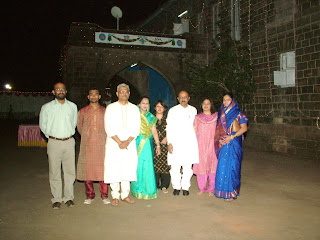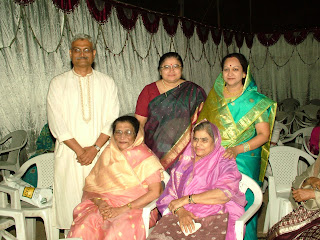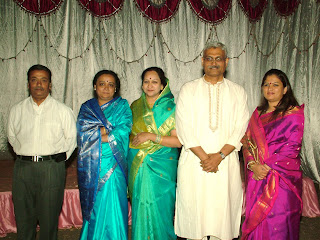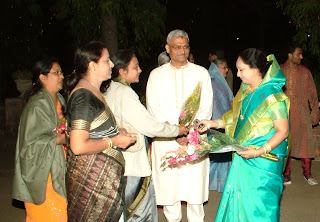The 25 th. Anniversary was on the 10 th. of Jan. 2008, but we decided to have the party on the 26th. Jan. taking into consideration the convinience of all our friends and relatives.

We had decorated our Bunglow facade, with a lot of "running lights". The climate was a bit chilly so we had lit bonfires. We had arranged for 'live' music, playing mostly nostalgic Kishor Kumar, and Mohamad Rafi, numbers. Guests started arriving by 7 PM and it was past midnight, by the time the last guests departed. Almost all members of our extended family and some close friends and colleagues attended. Shri. Jayantrao Patil, to whom my cousin Shailaja is married and Shri. Satyajit Deshmukh, to whom my other cousin Renuka is married too attended. My friend and Brother-in-law, Ajit Suryavanshi, to whom Anija, my cousin is married was also there. Amongst my friends, Shri Vinod Digrajkar, Phaltane, Kashikar, Satpute, Maniyar, Saudatti, Anil Kulkarni, and many others were present. All of us enjoyed the 
 evening immensely.
evening immensely.

 evening immensely.
evening immensely.




























